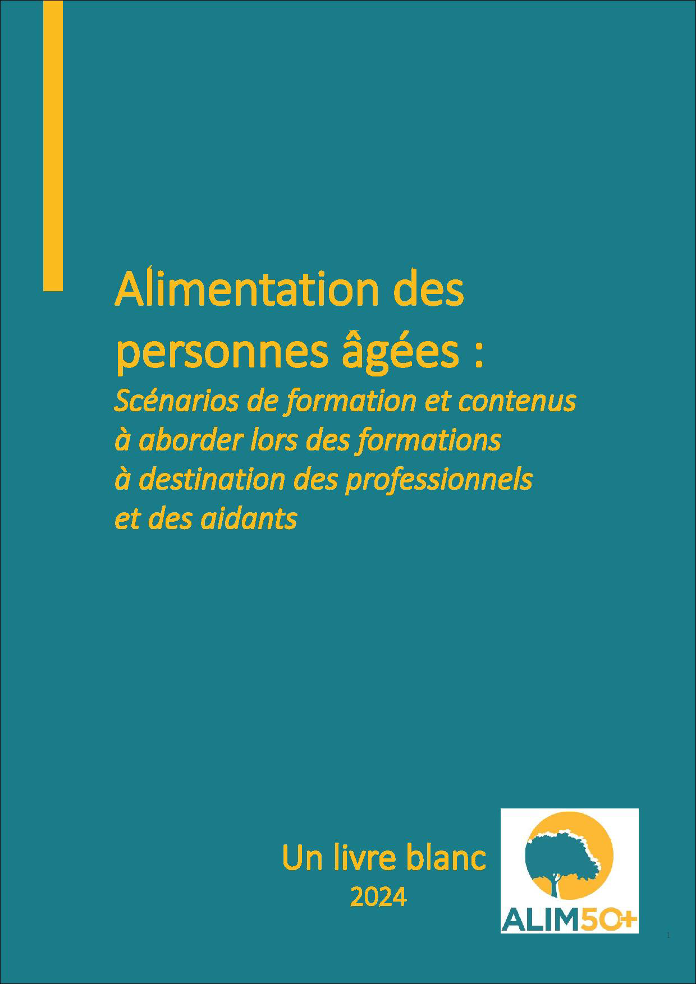Training professionals on senior nutrition
Published on 06 November 2025

On October 9, 2025, the association ALIM50+ presented its White Paper aimed at promoting the training of professionals involved in senior nutrition. This White Paper is the result of a multi-partner working group that included researchers from the CSGA.
Opinion No. 92 of the National Food Council (CNA), approved on November 6, 2024, emphasizes that eating well is an essential factor for healthy aging. Eating well means maintaining a balance among three key dimensions: nutritional (ensuring food intake meets individual needs), sensory (preserving the pleasure of eating), and psycho-social (maintaining conviviality during meals). An appropriate diet thus contributes to sustaining health, autonomy and well-being in older adults. However, preserving these key dimensions among seniors faces several challenges — from a general lack of knowledge (and sometimes misconceptions) about the nutritional needs of older adults, to difficulties related to eating itself, which may appear with age and require appropriate support. In this context, recommendations No. 9 and No. 10 of the CNA highlight the importance of training all actors within the aging ecosystem – health professionals, catering staff, caregivers, and support workers — in the principles of an age-appropriate diet.
Four years ago, the ALIM50+ association formed a multi-stakeholder working group to explore existing training programs and identify the competency needs of the various professionals involved. This group, which included Claire Sulmont-Rossé, researcher at the CSGA, led to the development of the White Paper. The document proposes training scenarios and pedagogical content designed for professionals engaged in training those who work with older adults. The White Paper is structured into two main parts: the design of training programs and the definition of educational objectives. A core section of nine modules covers key topics such as nutrition and healthy aging, food environment and well-being, meal and food service adaptation, sustainable food and teamwork. This core is supplemented by seven job-specific sheets, tailored to the professions concerned.
Finally, the White Paper reaffirms that the older person must remain at the heart of every training and action plan, with full respect for their needs, preferences, habits, and above all their dignity.
Key words
Aging, older adults, seniors, training, association, nutrition, pleasure of eating, conviviality
Contact
Claire Sulmont-Rossé , équipe MIAM

